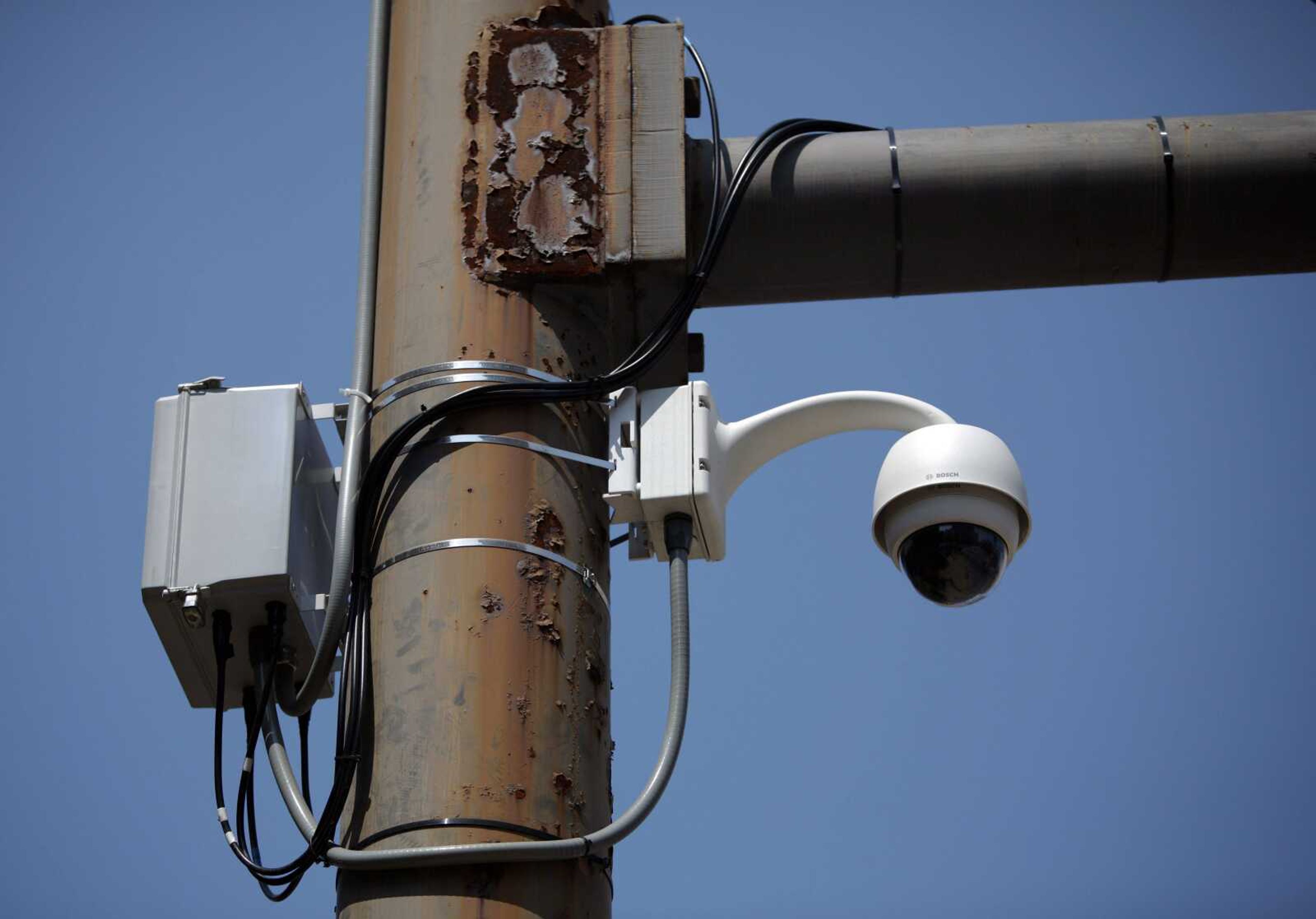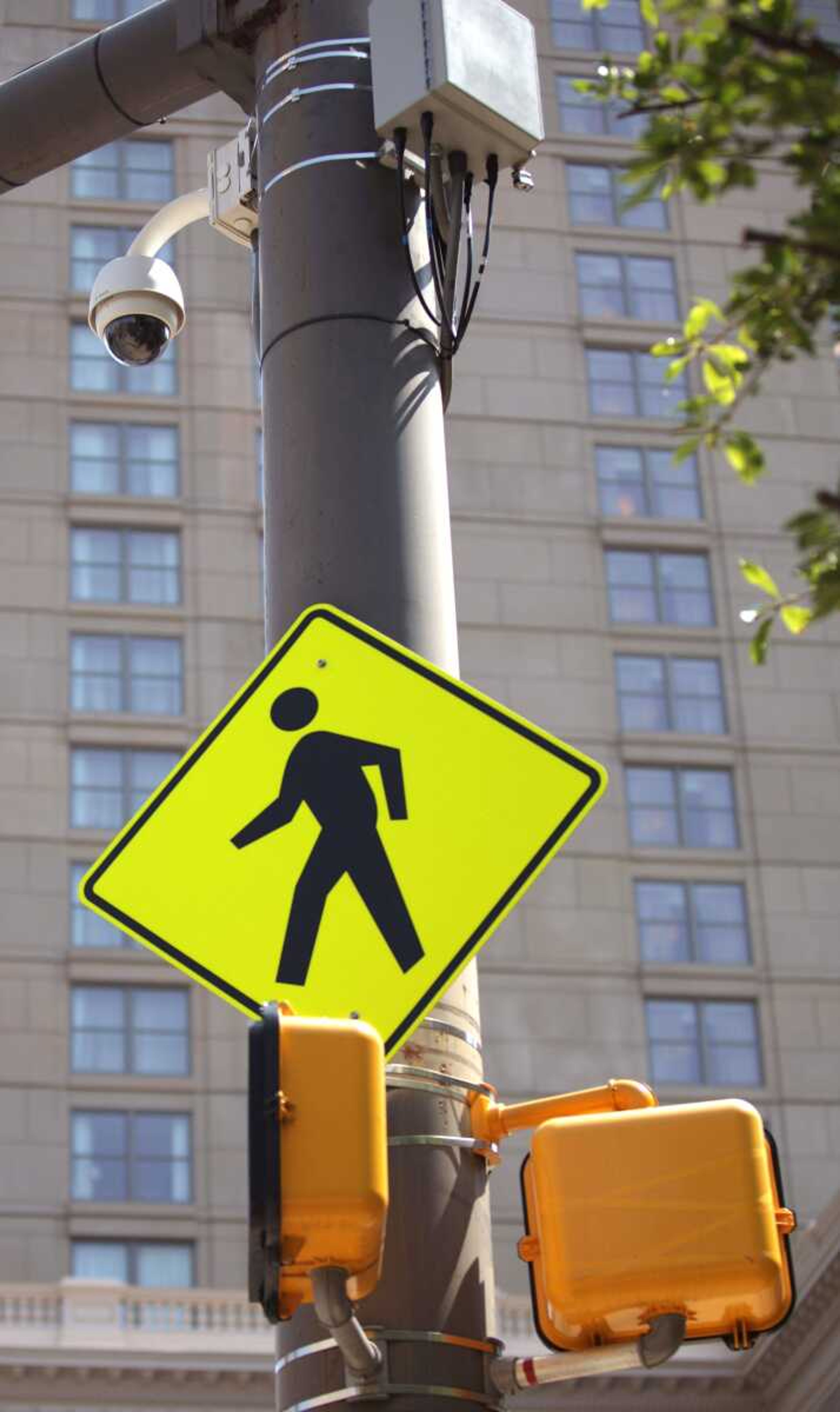Pa. city in heart of Amish area blankets streets with cameras
LANCASTER, Pa. -- Horses drawing buggies regularly clop down the roads approaching Lancaster, a peaceful city in the heart of Amish country that had only three murders last year and relatively low crime. But if the community sounds reminiscent of the past, it also has some distinctly modern technology: 165 surveillance cameras that will keep watch over thousands of residents around the clock...
LANCASTER, Pa. -- Horses drawing buggies regularly clop down the roads approaching Lancaster, a peaceful city in the heart of Amish country that had only three murders last year and relatively low crime.
But if the community sounds reminiscent of the past, it also has some distinctly modern technology: 165 surveillance cameras that will keep watch over thousands of residents around the clock.
When it is complete, the surveillance system will be bigger than those in large cities such as Philadelphia, San Francisco and Boston. And the fact that it will be monitored by ordinary citizens has raised privacy concerns.
"They are using fear to sell the cameras as much as possible," said Charlie Crystle, a member of a fledgling citizens group that opposes the cameras and is trying to raise public awareness about them. "There's just a huge potential for personal and political abuse."
Officials in the city of 54,000 say the cameras have deterred crimes and helped solve them.

The white, domed cameras sit atop utility poles in public spaces, business districts and some residential areas. They are monitored 18 to 24 hours a day by employees of the Lancaster Community Safety Coalition, a not-for-profit board with workers who report suspected crimes to police.
Lancaster is the seat of Lancaster County, a popular and peaceful tourist destination known for having one of the nation's largest Amish populations. Horses and buggies are common on surrounding roads.
The safety coalition, directed by City Councilman Joseph Morales, screens prospective monitors and provides training about racial profiling and how to spot trouble. The group has seven monitors, all paid. The coalition does not release their names.
Monitors sit in a room with two 42-inch plasma screens and six smaller ones, each divided into views of different cameras. A joystick allows them to zoom in or move the cameras if they see something unusual. If they do, they call police.
A January study by the University of California, Berkeley, found that cameras did not reduce homicide in San Francisco but did help reduce the number of burglaries and some thefts.
Those findings and others are part of why Crystle and other critics do not think the effort is worth the risk in a small town like Lancaster.
He also points to examples such as Cambridge, Mass., where officials decided in February against adding surveillance cameras because of privacy concerns.
Crystle and others in Lancaster say they have done nothing to warrant being watched. Nick Boots, who owns a barber shop near a camera, said he thinks the city is using fear to gain support for the cameras.
"Through the fear of the perceived threat, people are willing to give up certain rights," Boots said. "You got to think of Lancaster now being like an open-air prison. Who's the warden?"
Others praise the project, including Francisco Cruz, 65, owner of Cruz Barber Shop, who said he's seen less drug dealing and fewer prostitutes outside his shop since cameras went up.
"I don't care if they put one right here in the shop," Cruz said.
The American Civil Liberties Union also objects to the project, especially since it covers the entire city -- not just high-crime areas.
"When you have a blanket network of surveillance, you are no longer about solving crime," said ACLU attorney Mary Catherine Roper, citing studies that show cameras mainly help solve just small crimes. "Now you're talking about a surveillance community."
Connect with the Southeast Missourian Newsroom:
For corrections to this story or other insights for the editor, click here. To submit a letter to the editor, click here. To learn about the Southeast Missourian’s AI Policy, click here.









